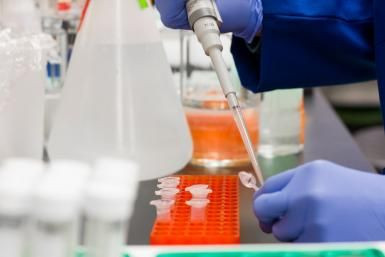Covid-19 immunity: studies paint a complicated picture

The same week that a yet-to-be peer-reviewed paper found that people infected with Covid-19 may have immunity that last years or longer, the CDC released another study that said that may not be the case.
The CDC study, published in the Nov. 27 issue of the agency’s Morbidity and Mortality Weekly Report (MMWR), found that, of 156 frontline health care workers who tested positive for Covid-19 last spring, 146 (93.6%) showed a decline in coronavirus antibody levels when tested again 60 days later.
Another 44 (28.2%) people had no detectable levels of antibodies. Decline in SARS-CoV-2 Antibodies After Mild Infection Among Frontline Health Care Personnel in a Multistate Hospital Network — 12 States, April–August 2020 | MMWR (cdc.gov) The CDC study said its findings have implications for Covid-19 treatment, especially in the use of convalescent plasma.
“These results demonstrate that the optimal window for collecting convalescent plasma with high levels of SARS-CoV-2 antibodies from donors who have recovered from Covid-19 might be short, because of substantial decline in antibody levels within 60 days,” the report noted. “Whether decline in SARS-CoV-2 antibodies increases risk for reinfection and disease in humans remains unknown.”
The study does note that, while antibodies may wane over time or not be detectable, memory B-cell and T-cell responses might reduce the severity of illness with repeat exposure or infection.
B-cells and T-cells are lymphocytes. B-cells fight bacteria and viruses. There are two main types of T-cells: helper T-cells and killer T-cells. Helper T-cells stimulate B-cells to make antibodies and help killer cells develop. Killer T-cells eliminate cells infected by a foreign invader. Introduction to T and B lymphocytes - Autoimmunity - NCBI Bookshelf (nih.gov)
Another, not-yet-published study, however, presented a more hopeful take on Covid-19 antibody longevity. Posted online at bioRxiv , it found that people who recovered from Covid-19 still have enough immune cells to repel the virus and prevent reinfection eight months after infection. Immunological memory to SARS-CoV-2 assessed for greater than six months after infection | bioRxiv
The study reported that people who recovered from Covid-19 have antibodies and neutralizing plasma, as well as virus-specific memory B- and T-cells, which not only remain but in some cases increase over three months after symptom onset.
“That amount of memory would likely prevent the vast majority of people from getting hospitalized disease, severe disease, for many years,” Shane Crotty, PhD, a virologist at the La Jolla Institute for Immunology who co-led the new study, told the New York Times .
The bioRxiv study is consistent with reports emerging from other labs. A study published a week earlier in the journal Nature Medicine found that people who recovered from Covid-19 carried protective killer immune cells. Characterization of pre-existing and induced SARS-CoV-2-specific CD8 + T cells | Nature Medicine Researchers at the University of Washington, led by immunologist Marion Pepper, PhD, had earlier shown that certain “memory” cells that were produced following infection with the coronavirus persist for at least three months, according to the New York Times .
These studies “are all by and large painting the same picture, which is that once you get past those first few critical weeks, the rest of the response looks pretty conventional,” said Deepta Bhattacharya, PhD, an immunologist at the University of Arizona, told the New York Times . Immunity to the Coronavirus May Last Years, New Data Hint - The New York Times (nytimes.com)
Positive reaction to the unpublished study has come from around the world, showing just how much scientists, doctors and, in general, everyone is hungry for some good news about the pandemic.
“This preprint has yet to be peer-reviewed but brings exciting news,” wrote Deborah Dunn-Walters, PhD, professor of immunology at the University of Surrey in London and chair of the British Society for Immunology’s expert advisory group on immunology and Covid-19.
Robert Calandra is an award-winning journalist and book author who has written extensively about health and medicine. His work has appeared in national and regional magazines and newspapers.



























